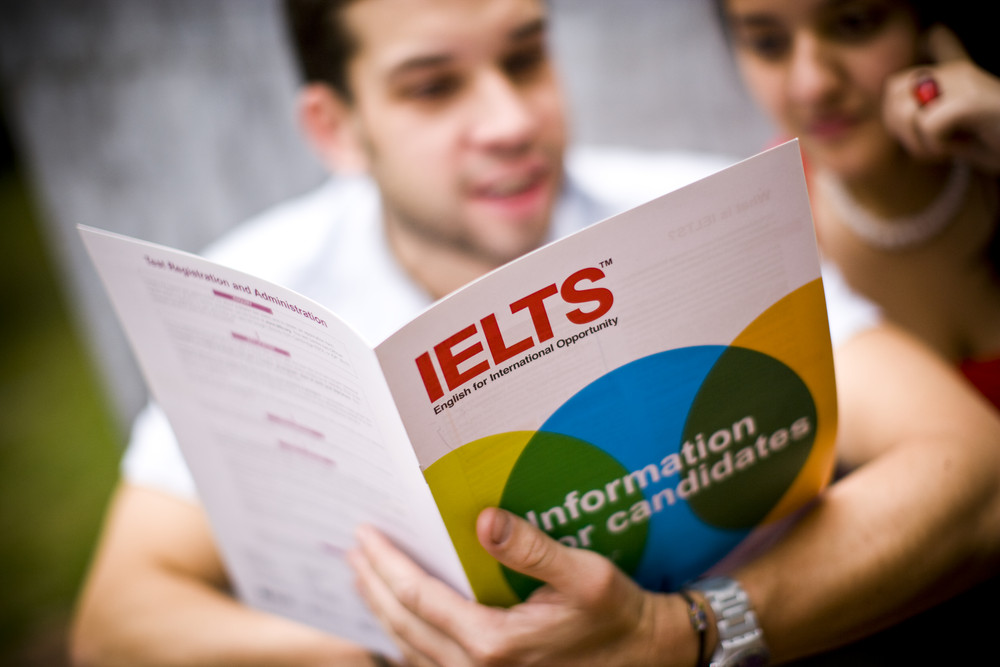IELTS, which stands for the International English Language Testing System, is a widely recognized and internationally standardized test designed to assess the English language proficiency of non-native English speakers. The IELTS test measures an individual’s ability to understand, communicate, read, and write in English, making it a crucial requirement for those who wish to study, work, or immigrate to English-speaking countries.
IELTS is accepted by thousands of organizations and institutions worldwide, including universities, colleges, employers, government agencies, and immigration authorities.

IELTS Test Pattern
The IELTS exam consists of four main modules, each designed to assess different aspects of a test taker’s English language proficiency. These four modules are:

- Listening:
- Format: The listening module is designed to evaluate a candidate’s ability to understand spoken English in various contexts. It consists of four recorded conversations or monologues, which represent everyday situations and academic settings. These recordings are played only once.
- Types of Questions: The questions in this module include multiple-choice questions, matching tasks, and sentence completion tasks, among others.
- Duration: The listening test typically lasts around 30 minutes, including the time given to transfer answers to the answer sheet.
- Reading:
- Format: The reading module assesses a test taker’s ability to understand and interpret written English. It includes three texts, each with a set of questions. The texts are usually taken from newspapers, books, magazines, or other authentic sources.
- Types of Questions: The questions in this module can include multiple-choice questions, matching tasks, true/false/not given, sentence completion, and summary completion, among others.
- Duration: The reading test usually takes 60 minutes to complete.
- Writing:
- Format: The writing module consists of two tasks: a. Task 1: In Academic IELTS, you are required to describe, summarize, or explain a visual representation, such as a graph, chart, table, or diagram, in at least 150 words. In General Training IELTS, Task 1 is a letter to be written in response to a given situation. b. Task 2: For both Academic and General Training IELTS, Task 2 involves writing an essay in response to a specific question or statement. Test takers are required to provide arguments, examples, and a conclusion in at least 250 words.
- Duration: Test takers have 60 minutes in total to complete both writing tasks. Task 2 carries more weight in terms of scoring.
- Speaking:
- Format: The speaking module evaluates a candidate’s ability to communicate verbally in English. It consists of a face-to-face interview with a certified IELTS examiner. The interview is divided into three parts:
- Part 1: The candidate answers questions related to personal topics, such as hobbies, daily routines, and background.
- Part 2: The candidate is given a cue card with a specific topic and has one minute to prepare before speaking for 1-2 minutes on that topic.
- Part 3: The candidate engages in a discussion with the examiner on abstract and complex topics related to the cue card from Part 2.
- Duration: The speaking test usually takes around 11-14 minutes.
Types of IELTS test
IELTS can help you move forward with a variety of life choices, from improving your English language skills to relocating abroad to study or develop your career.

There are two main types of IELTS tests:
- IELTS Academic
- IELTS General Training
The right test for you will depend on whether your main goal is to study or to work in your chosen country.
If you need help deciding which IELTS test is right for you, some key differences are outlined below.
IELTS Academic
The IELTS Academic test is designed to measure your English language proficiency and to assess if it is suitable for an academic environment. The test reflects aspects of academic language and evaluates whether you’re ready to begin training or studying in English.
Take IELTS Academic if you want to:
- Study at an undergraduate or postgraduate level in an English-speaking country
- Apply for Student Route visa (Tier 4) to study at a UK university that is a Student Route (Tier 4) Sponsor
- Work for a professional organisation in an English-speaking country.
IELTS General Training
The IELTS General Training test is designed to measure your English language proficiency in a practical, everyday context. The test reflects both workplace and social situations.
Take IELTS General Training if you want to:
- Train or study below degree level
- Work or undertake work-related training in an English-speaking country
- Emigrate to an English-speaking country
- Get another job in your own country where a recognised proficiency in the English language is required.
Eligibility Criteria for IELTS Exam
IELTS eligibility in India: In this section, we are going to be talking about the IELTS exam 2023 eligibility requirements. There are no strict qualifications for IELTS as prescribed by IDP – the conducting body of the IELTS exam in India. However, the candidates looking to take the IELTS exam in India are required to be at least 16 years of age. Perhaps this can be mentioned as the only IELTS exam eligibility in India which requires candidates to be aged 16 or above to take this examination, irrespective of their gender, nationality, or background. There is no maximum age limit fixed by the conducting body.
Minimum IELTS Score required by Top Universities
IELTS exam 2023 eligibility for Top Universities: Every university has a different set of requirements and its own set of guidelines as part of its admission process. Also, all the universities have set different IELTS Eligibility Criteria that candidates need to fulfil to get admitted. In addition to this, candidates should also match the other eligibility requirements set by the university or the educational institute where they are planning to enroll.